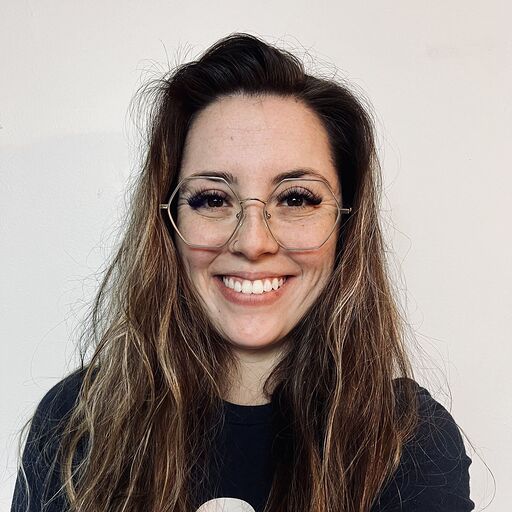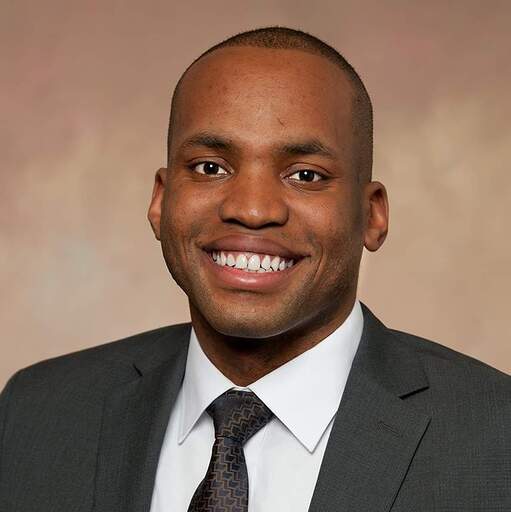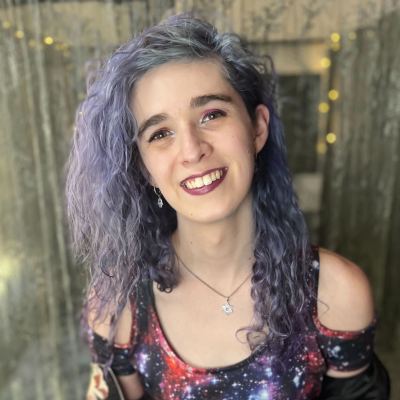Empowered to Bloom: Benchling’s LGBTQIA+ community on the importance of connection in the workplace

Pride at Benchling has been a time to celebrate the LGBTQIA+ community, honor its history, and center joy. While this remains present in our celebration of Pride this year, we also hold space to acknowledge the threat to the rights and safety of the LGBTQIA+ community, with the record breaking number of anti-LGBTQIA+ bills introduced in U.S. state legislature.
With this challenge to safety and inclusion, having a supportive community has never been more important. Bloom, our employee resource group (ERG) for queer Benchlings and their allies, has been intentional about building a community for its over one hundred members. A key element is having structured support and access to company resources, which is why Benchling organizes dedicated ERGs led by compensated leaders.
“LGTBQIA+ issues continue to be front and center in political debate and even though we are making progress, there are lawmakers working every day to restrict our rights,” said Christopher Wrenn, Bloom co-lead at Benchling. “I believe groups like Bloom are more important than ever to provide community and a safe space to find like-minded individuals.”
That’s why this month, we celebrate our LGBTQIA+ community and recognize the joy and impact of connection. Here’s what some of our Bloom members are saying about the power of community in the workplace.
Madeleine Myers
Bloom Co-Lead | Implementation Manager, Remote NY | she/her

How has Bloom shown up for this community and provided support?
Benchling is a place where I can be free to be authentically me. It's empowering to show up to work each day knowing that I'll be treated with respect and acceptance, regardless of how I identify, and I can do the same for others. Bloom has shown me that you can show up professionally while also enabling and encouraging me to support my colleagues to show up as their authentic selves each and every day.
Travis Mitchell
Legal Counsel, San Francisco | he/him

What does support look like?
To paraphrase a popular quote, support looks a lot like hard work. People (both in the community and allies) being outwardly accepting of the LGBTQIA+ community via their messages, stickers on laptops or celebrations is always welcome and vitally important, especially in these times where it can feel like we are going backwards in so many ways.
However, in my opinion, what is even more important is that all of us do the work to make sure that being under any facet of the LGBTQIA+ umbrella doesn’t have a negative effect on anyone’s life, especially in the workplace. This looks like writing policies that are inclusive of all, providing space for LGBTQIA+ people to be heard and give feedback, speaking with friends and family about why support for the LGBTQIA+ community is not only “nice” but critical, and a whole host of other steps. The work goes both ways; as members of the community, especially ones with considerable privilege and influence, we need to also do the hard work of advocating for ourselves and our siblings, loudly, in all the spaces to which we have access.
How does Bloom think about intersectionality within the Benchling LGBTQIA+ community, and do you partner with other ERGs?
Understanding intersectionality is hugely important to any group, but I think is especially salient to the LGBTQIA+ community because of the huge diversity within our community and how it can affect people’s lived experience as queer. Bloom has always been aware of this and makes a concerted effort to ensure that a wide range of voices are heard during our many events and programs. However, a big part of this is also “passing the mic” to others who can speak to their experiences across these lines of difference, be it race, gender, or neurodiversity. Many times this looks like inviting other ERGs to co-sponsor or even run events for Bloom.
As a co-lead of our BIPOC (Black, Indigenous, and People of Color) ERG, I’ve found that partnering with Bloom on events is not only valuable for the shared experience, but also serves a reminder to those that attend (and us as leaders!) of the great diversity within both communities and to keep the impact of intersectionality at the forefront of our work together.
Alyss Weissglass
Software Engineer, San Francisco | she/her

What is the impact of building a LGBTQIA+ community in the workplace?
Every day I wake up to news that lawmakers across the country think I’m dangerous. As a transgender woman in the California tech scene, I am privileged to be shielded from a lot of it, but I am afraid, and my heart aches for my community.
I transitioned in college. In the days where I was more visibly trans than I am now (“non-passing,” colloquially), I was asked repeatedly if I was “in the right room” while attending my computer science coursework. While my peers were getting summer internships and new-grad job offers, I was getting pointed stares at my painted nails and surprised looks when the name on my resume didn’t match the name on my ID.
I did not get an industry offer until after I had legally changed my name, and it was one of the first I applied to post-update. I’ll never know for certain if those two things were related, but their proximity has kept me up many nights. For all the ways in which tech forgoes traditional professionalism, queerness is still intuitively devalued by many people in the workplace.
More than half of Americans believe they don’t personally know a transgender person, according to a 2021 Pew Research Center survey. Everything that most people know about trans people comes from our (questionable) media visibility and the politicians’ stump: we are demonized, fetishized, and feared.
There is a pervasive belief, even among allies, even within the community, that queerness is inextricable from pain. I didn’t have very many role models growing up, and it was impossible for me to imagine what my adult life could be like. I did not meet a trans person significantly further along in their transition than me until I was 22 — three years after I started my own transition.
Back in high school, I found the online blog of a transgender professor. She wasn’t famous. She posted about mundane things: the classes she taught, her favorite TV shows, her favorite football team. She never knew I existed, but she showed me an image of success that I was able to strive for. She was a celebrity to me.
I want to show 14-year-old me that it's possible to live a joyful, proud, transgender life. While there are many ways to be successful in this life, I’ve achieved one that our society values. It’s important to me that young trans people grow up knowing that’s possible for them. It’s also important to me that my cisgender coworkers — and fellow citizens — see an image of trans adulthood different from the one they get on TV.
How will you celebrate Pride?
I will march in the trans march, I will celebrate and laugh with my friends, and I will find joy, comfort, and history with my religious community. I am a member of San Francisco’s historically queer synagogue, and we celebrate Pride like it’s a holy month. Pride Shabbat is always a particular highlight for me. Additionally, I will be taking a week off from Benchling to do some work with a program for trans youth in the Bay Area.
Learn more about ERGs, our team culture, and life at Benchling.
Powering breakthroughs for over 1,300 biotechnology companies, from startups to Fortune 500s
